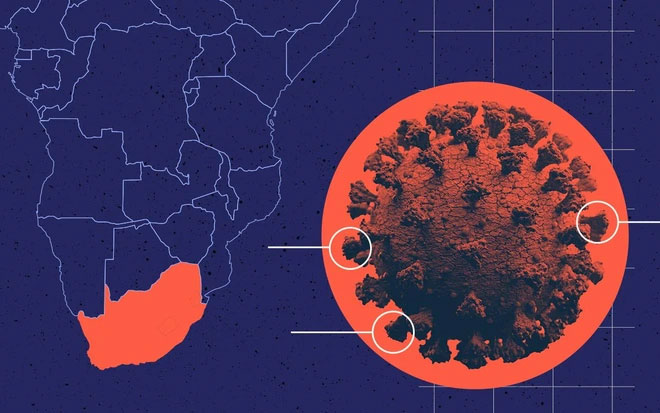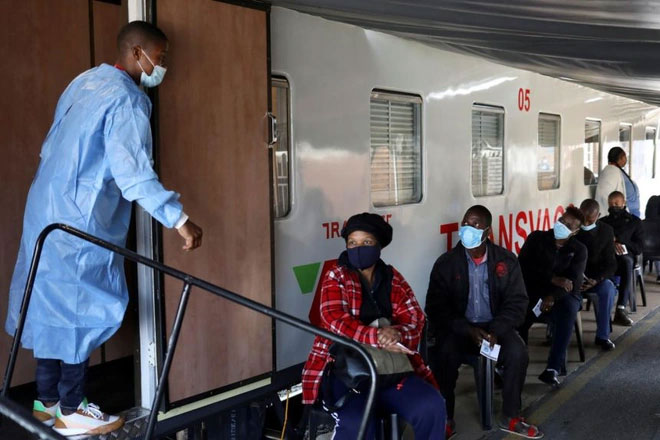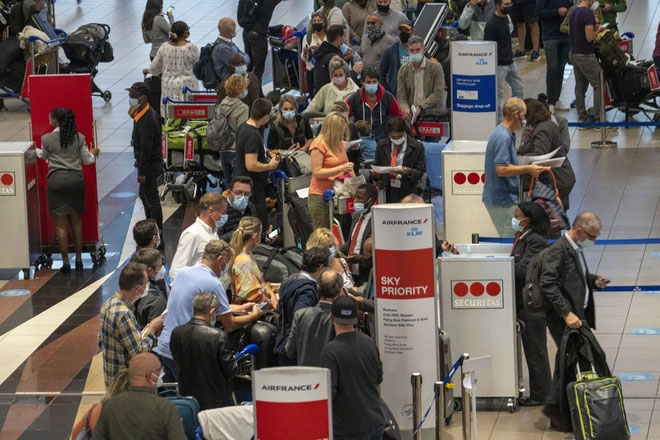With a mutation rate double that of Delta and quickly becoming the dominant variant in South Africa, Omicron has raised significant concerns worldwide, prompting urgent action.
On November 26, the World Health Organization (WHO) classified the new variant of SARS-CoV-2 (B.1.1.529) as a “variant of concern,” naming it Omicron. This variant is believed to have emerged in Africa on November 11, prior to scientists announcing genetic sequencing results this week that revealed an unusual number of mutations.
Just hours after South Africa’s announcement, many countries around the world swiftly imposed travel restrictions on several African nations, including South Africa and Botswana. This response was much quicker compared to the emergence of the Delta variant earlier this year. Naturally, countries have valid reasons to be concerned about this new variant that has only appeared in the last two weeks.
Unprecedented Number of Mutations

Omicron is the SARS-CoV-2 variant with the most mutations ever. (Photo: Telegraph).
According to genetic sequencing results, Omicron has about 50 mutations, including at least 32 mutations on the spike protein, a structure that helps the virus adhere and invade human cells. In contrast, Delta contains approximately 13 to 17 mutations on the spike protein. Mutations in the spike protein can alter the virus’s ability to infect human cells and spread, or may make it more challenging for immune cells to attack the pathogen. This raises concerns that Omicron may spread more easily or evade immunity more effectively.
Lawrence Young, a virologist at the University of Warwick in the UK, described the Omicron variant as “very concerning.” “It is the most mutated version of the virus we have ever seen. This variant contains some mutations we have seen in other variants, but no virus has ever combined all these features. It even has new mutations,” Young stated.
Scientists had previously predicted the emergence of a new variant as an “expanded version” of Delta. However, Omicron is entirely unrelated. Instead, it simultaneously contains some of the most concerning mutations from the Alpha, Beta, and Gamma variants, as well as entirely new mutations.
Professor Ravi Gupta from the University of Cambridge mentioned earlier this month that he was 80% certain a super variant would emerge, and the current information about Omicron seems to support this.
Neil Ferguson, director of the Global Infectious Disease Analysis Centre at Imperial College London, also noted that Omicron contains “unusual” mutations on the spike protein and may have a higher ability to evade immunity compared to the original strains of SARS-CoV-2.
“I fear that Omicron may have a higher ability to neutralize antibodies generated by natural immunity or vaccines,” warned Jesse Bloom, a virologist at the Fred Hutchinson Cancer Research Center in the U.S.
Becoming the Dominant Variant in Just Days

Omicron’s rapid spread could strain Africa’s healthcare system. (Illustrative photo: Reuters).
Another alarming sign regarding Omicron is its speed of transmission.
Professor Sharon Peacock of the University of Cambridge stated that while the number of Omicron cases in South Africa remains relatively low, it has begun to spread rapidly over the past week. She reported that on November 16, South Africa recorded only 273 cases, but by November 25, that number had risen to over 1,200, with more than 80% concentrated in Gauteng province.
According to Tulio de Oliveira, a genetic sequencing expert, Omicron currently accounts for about 75% of the sequenced SARS-CoV-2 samples in South Africa. “It appears to spread very easily. In less than two weeks, it seems to have become the dominant variant in South Africa, surpassing even Delta,” said geneticist Yatish Turakhia.
In agreement, Dr. Ashish Jha at Brown University noted that Omicron operates in a “very different” manner and has “quickly become the dominant variant in South Africa in just a few days to weeks instead of months.” Expert Tulio de Oliveira predicts that with this rate of spread, Omicron could quickly exert pressure on Africa’s healthcare system within days or weeks.
Omicron is believed to have first appeared in South Africa and Botswana in mid-November.
This variant has now been detected in Hong Kong, Israel, and several European countries such as Belgium, the UK, and Germany.
Can Travel Restrictions Stop Omicron?

Passengers queue at Johannesburg airport to leave South Africa following news of Omicron. (Photo: AP).
Immediately following news of Omicron, countries around the world imposed travel restrictions on South Africa, Botswana, and some neighboring countries. Scientists believe that travel restrictions may slow the spread of Omicron but could also complicate tracking the epidemiology of this variant.
Therefore, Professor Ravi Gupta advises that instead of imposing travel bans, countries should enhance testing for all individuals arriving from high-risk areas for Omicron and activate monitoring systems to determine whether a new variant is spreading rapidly in specific regions.
Researchers emphasize that many questions regarding Omicron require more time to unravel, such as whether this variant is more transmissible or has higher virulence compared to the original strain. However, they also affirm that vaccines remain a crucial measure to mitigate the risk of transmission and variant emergence, though the key issue for researchers is understanding how effective vaccines are against Omicron.
“I believe the situation is not such that vaccines become useless against Omicron. That is almost impossible. The question is how much the virus reduces the effectiveness of the vaccine. I am confident we will have data in the coming days,” said expert Jha.
“It is a variant of concern, meaning we will have to upgrade our response. But we should not rush to conclude that it will become a problem,” said Dr. Chris Smith, a clinical virologist at the University of Cambridge, UK.


















































